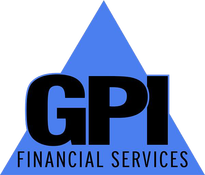|
The financial news has recently been dominated by the new tax law, but so many of the columns based on questions from readers throughout the year are still relevant and timely. Here are the nine most valuable personal finance lessons based on your questions in 2017 1. Knowing the Medicare rules and options can help you avoid penalties, fill in gaps, save money, and get the best coverage each year. I receive more questions about Medicare than anything else. Many readers are turning 65 and want to know the sign-up rules. Others continue to work past age 65 and want to make sure they aren't hit with late-enrollment penalties. See When to Sign Up for Medicare for the standard sign-up rules, and see What to Know About Enrolling in Medicare Part B if you delayed signing up past 65 because you were working. Readers also understand how important it is to get extra coverage to fill in the gaps in Medicare, whether through a medigap plan paired with a Part D prescription drug plan (to cover medical and drug expenses, respectively) or through a Medicare Advantage plan (to cover both). See When to Sign Up for Medigap and Prescription-Drug Coverage and Medicare Part D Beneficiaries May Pay Less for Prescriptions in 2018 . If you have Medicare Advantage, you can switch plans during open enrollment every year; you may have opportunities to change plans at other times, too.
At this time of year I'm also inundated with questions from people who have just received statements letting them know how much they'll have to pay for Medicare Part B for the year ahead and whether they'll be hit with the high-income surcharge. Some wonder how to contest the extra charge if their income has recently decreased. See What You'll Pay for Medicare in 2018 for more information about how the premiums are calculated and how to contest the high-income surcharge if you had an eligible life-changing event, such as retirement. 2. Some key strategies can help you reduce your out-of-pocket medical expenses and take advantage of tax breaks for health care costs at any age. Whether you have health insurance through your employer, you buy it on your own or you're now on Medicare, you'll still have some out-of-pocket health care expenses. But some strategies and special tax breaks can help you stretch your health care dollars and reduce your costs. More and more people have high-deductible health insurance policies, and they're interested in benefiting from the triple tax break of a health savings account. See 10 Things You Need to Know About Health Savings Accounts , How Much Families Can Contribute to a Health Savings Account and Transferring IRA Money to a Health Savings Account . Even though you can no longer contribute to an HSA after you sign up for Medicare, you can still use any money already in the account tax-free for out-of-pocket medical expenses, as well as premiums for Medicare Part B, Medicare Part D and Medicare Advantage. If you don't have a high-deductible health insurance policy, you can't contribute to a health savings account. But you may still be able to use tax-free money for medical expenses if your employer offers a flexible spending account. You can use the money tax-free for deductibles, co-payments and eligible expenses that aren't covered by insurance, as well as for prescription drugs and even some drugstore items without a prescription. 3. Understanding the required minimum distribution rules for retirement accounts can help you avoid penalties and minimize the tax hit. Many readers turning 70½ had a lot of questions about taking required minimum distributions from their IRAs and 401(k)s. See Meeting Your First RMD Deadline and 4 Ways RMDs Are Different for 401(k)s and for IRAs . Readers were particularly interested in the rules for making a tax-free transfer from an IRA to charity, which counts toward your RMD but isn't included in your adjusted gross income. See The Advantages of a Tax-Free Transfer From an IRA to Charity , Making Charitable Donations From Your Retirement Accounts , How to Ensure Your IRA Donation to Charity is Tax-Free and How to Report a Tax-Free Transfer From Your IRA to Charity 4. If you work longer, you can delay tapping your retirement savings, but doing so may affect your Social Security benefits. On the one hand, every month you delay claiming Social Security retirement benefits until age 70 will increase your payout. See Boost Your Social Security Benefit Every Month You Delay . On the other hand, your earnings could affect your Social Security payouts if you sign up for benefits before your full retirement age. 5. New rules for retirement saving help you make the most of extra opportunities to save. Readers are taking advantage of higher contribution levels for their retirement savings. And many members of the military have to make an important decision about their retirement plans in 2018, which could give them an opportunity to receive matching contributions to their Thrift Savings Plan for the first time. 6. You can clear out your attic and save money at tax time if you know which tax records to keep and which to toss. One of the most popular columns of the year was When to Toss Tax Records . Readers were eager to get rid of old tax files, but they want to make sure they keep any records that can help if they're audited. They also wanted to know about records they should keep even longer, especially ones that establish the cost basis of certain investments and can reduce the tax bill when they sell them. 7. Protecting your home from disasters can help protect your finances. After a year filled with natural disasters, many readers wanted to know how they could protect their homes and finances from expensive damages. After seeing so many homes in Houston damaged by flooding that wasn't covered by homeowners insurance, readers learned a lot about making sure they have the right insurance to cover all of their potential risks. Readers also discovered that homeowners insurance can still leave you with big out-of-pocket costs, whether because of large windstorm deductibles or because you have to wait for an insurer to pay your claim. 8. Charitable donations can help others, reduce your taxes and teach your family about philanthropy. The natural disasters made a lot of readers think about charitable giving. They wanted to find the best charities to support victims of Hurricanes Harvey , Irma and Maria . Even after several months have passed, victims can still benefit from contributions to help with rebuilding. The year of disasters also inspired readers to consider setting up a donor-advised fund to teach children and grandchildren of the importance of philanthropy. 9. Parents can save money on a variety of child-related expenses. Families with teenagers are always looking for ways to cut their car insurance costs, and several strategies can help. And anything you can do to reduce college costs can make a big difference in your family's financial situation. New deadlines for filing the federal financial aid forms can give you a head start on getting assistance with college bills. And the American Opportunity Credit will continue to be a valuable tax break for families with kids in college. Families who have children with special needs were very interested in the growth of ABLE accounts. These accounts let families set aside money to pay for the expenses of children with special needs. The money grows tax-free, and opening an account won't jeopardize government benefits. More than half the states have introduced ABLE accounts, and many also offer state income tax breaks for contributions.
0 Comments
Leave a Reply. |
Media Inquiries(404) 484-3638 Archives
July 2023
Categories
All
|
Licensed in Georgia, Alabama, California, Florida, North Carolina, Ohio, South Carolina, and Virginia
Navigation |
Connect With UsShare This Page |
Contact UsGPI Financial Services2400 Herodian Way SESuite#220
Smyrna, GA 30080 (404) 484-3638 Click Here to Email Us |
Location |
Website by InsuranceSplash


 RSS Feed
RSS Feed